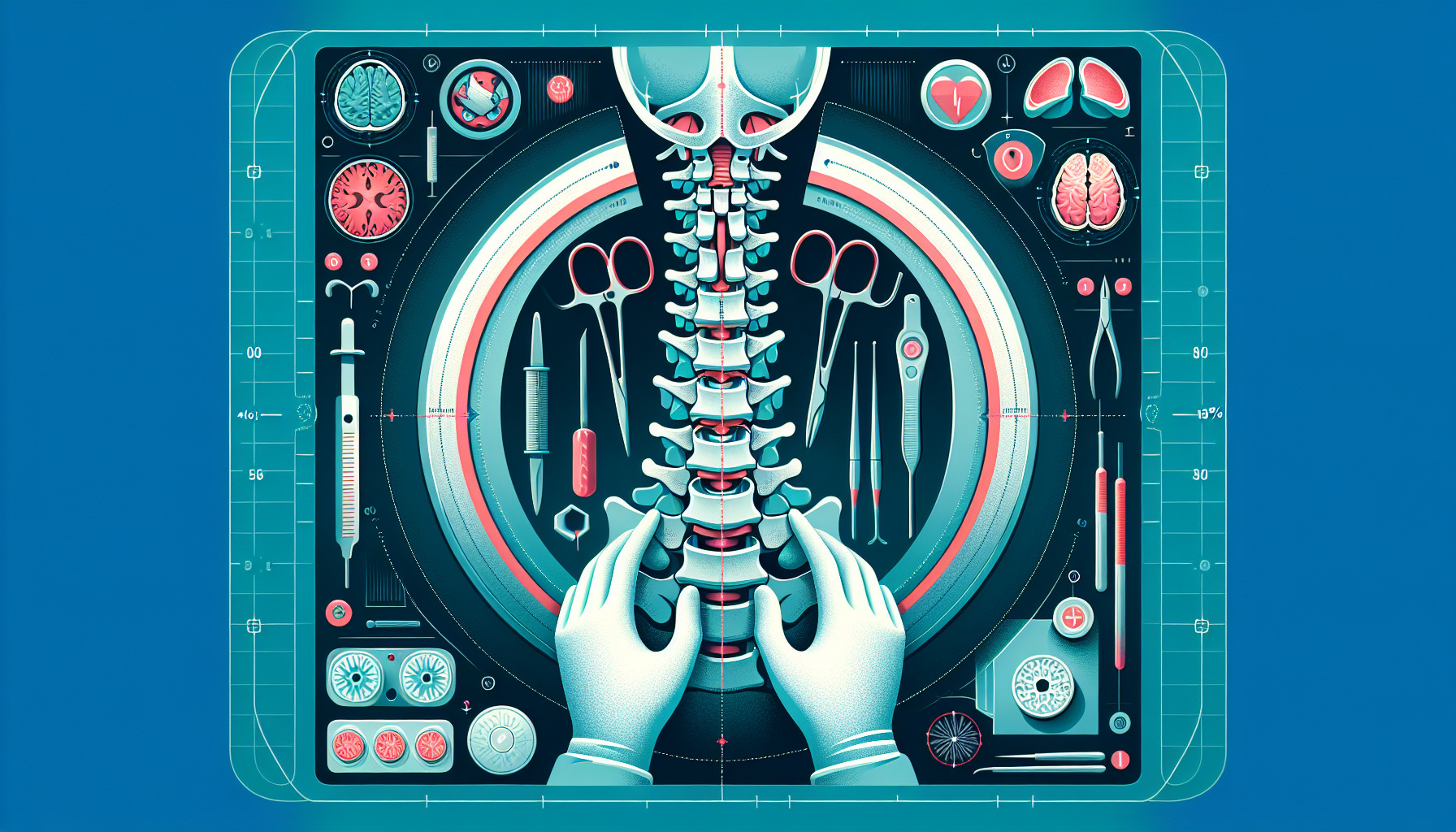Our Summary
This research project aimed to test a new protocol for patients with Obstructive Sleep Apnea (OSA) who are recovering from spinal fusion surgery in a post-anesthesia care unit (PACU). 63 patients at high risk or already diagnosed with OSA were chosen for the study.
The study found that about 74% of patients who had spinal fusion surgery were diagnosed or at high risk for OSA. Before the new protocol was implemented, 41% of patients experienced low oxygen levels, and 10% of patients had to be transferred from the PACU to the intensive care unit. After implementing the new protocol, both of these rates dropped - to 35% for low oxygen levels and 3% for transfers to intensive care.
The conclusion is that while more research is needed, this new protocol could potentially guide nursing care for post-surgery patients with OSA.
FAQs
- What was the purpose of this research project on patients with Obstructive Sleep Apnea (OSA) recovering from spinal fusion surgery?
- What were the results found after implementing the new protocol for patients with OSA recovering from spinal fusion surgery in a post-anesthesia care unit (PACU)?
- How may this new protocol for patients with OSA in the PACU impact future nursing care after spinal fusion surgery?
Doctor’s Tip
A helpful tip a doctor might tell a patient about spinal fusion surgery is to follow post-operative instructions carefully, including proper wound care, physical therapy, and activity limitations. It is also important to maintain a healthy weight, quit smoking, and avoid heavy lifting to promote successful healing and fusion of the spine.
Suitable For
Patients who are typically recommended for spinal fusion surgery include those with severe back or neck pain, spinal stenosis, herniated discs, scoliosis, degenerative disc disease, or spinal fractures. These patients may have tried other conservative treatments such as physical therapy, medications, or injections without success. Additionally, patients who have instability in the spine or have not responded to previous spinal surgeries may also be candidates for spinal fusion.
Timeline
Before spinal fusion surgery, patients typically undergo a series of preoperative evaluations including physical exams, imaging tests, and possibly consultations with other healthcare providers. They may also be instructed to stop taking certain medications or to adjust their diet in preparation for surgery.
During the surgery, the patient is placed under general anesthesia and the surgeon fuses together the vertebrae in the spine using bone grafts, metal rods, screws, or cages. The surgery can take several hours and may involve different approaches depending on the location and severity of the spinal condition.
After the surgery, the patient is usually monitored in the PACU for a few hours before being transferred to a regular hospital room. They will be given pain medication, antibiotics to prevent infection, and instructions on how to care for their incision site. Physical therapy may also be initiated to help the patient regain strength and mobility.
In the weeks and months following spinal fusion surgery, the patient will attend follow-up appointments with their surgeon to monitor their progress and address any concerns. They will gradually increase their activity level and may need to wear a brace for support. It can take several months to fully recover from spinal fusion surgery, and the patient may need to make lifestyle changes to protect their spine and prevent future injuries.
What to Ask Your Doctor
Some questions a patient should ask their doctor about spinal fusion may include:
- What is the purpose of the spinal fusion surgery?
- What are the potential risks and complications associated with spinal fusion surgery?
- How long is the recovery period expected to be?
- What kind of physical activity or restrictions will I have after the surgery?
- Will I need physical therapy after the surgery?
- How long will it take for me to see the full benefits of the surgery?
- What kind of pain management options will be available to me after the surgery?
- Will I need to make any lifestyle changes or modifications to my daily routine after the surgery?
- How often will I need to follow up with my doctor after the surgery?
- Are there any signs or symptoms that I should watch out for that may indicate a complication or issue with the surgery?
These questions can help patients better understand the procedure, the recovery process, and what to expect after spinal fusion surgery.
Reference
Authors: Wortham TC, Rice AN, Gupta DK, Goode V. Journal: J Perianesth Nurs. 2019 Aug;34(4):739-748. doi: 10.1016/j.jopan.2018.10.008. Epub 2019 Mar 1. PMID: 30827791
